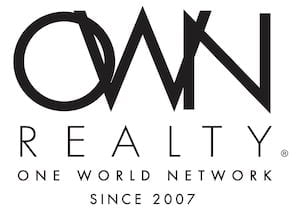1031 Exchange in North Carolina
- Home
- 1031 Exchange in North Carolina
Considering A Tax Deferred 1031 Exchange in North Carolina? We are here to help!
In the realm of real estate investment, the 1031 exchange strategy stands as a powerful tool, particularly in the dynamic landscape of North Carolina. Known as a tax-deferred exchange, this approach facilitates the seamless transition from selling a qualified property to acquiring another within a specified timeframe.
Unlike conventional transactions, a “1031 exchange” treats the entire process as an exchange rather than a standard sale, providing taxpayers the valuable benefit of deferred gain treatment. This strategy, governed by US CODE: Title 26, §1031, is designed for properties held for productive use or investment.
Navigating the nuances of a 1031 exchange in North Carolina requires a strategic approach aligned with the state’s economic landscape. As one of the fastest-growing states in the U.S., North Carolina boasts a thriving economy, diverse industries, and a burgeoning real estate market.
Investors engaging in a 1031 exchange should leverage this momentum and tailor their strategies to capitalize on the unique opportunities presented by the state. Embarking on a 1031 exchange journey in North Carolina unveils a tapestry of opportunities within a state known for its economic resilience and geographic diversity.
As the Tar Heel State continues to attract businesses and residents alike, investors engaging in a 1031 exchange are poised to tap into a dynamic real estate landscape. North Carolina’s allure extends beyond its urban centers; it encompasses the tranquil beauty of the Blue Ridge Mountains, the vibrant culture of the Piedmont region, and the picturesque coastal expanses.
The success of a 1031 exchange in North Carolina hinges on more than just financial acumen—it requires an appreciation for the state’s multifaceted character. From the bustling cityscapes of Charlotte and Raleigh to the historic charm of towns like Asheville and Wilmington, each locale presents a unique canvas for real estate endeavors.
Investors navigating the 1031 exchange terrain should embrace the diversity of North Carolina’s communities and tailor their strategies accordingly.

Understanding the intricacies of a 1031 exchange in North Carolina necessitates a grasp of the IRS’s guidelines and the regulatory framework outlined in the Like-Kind Exchange Regulations by the US Department of the Treasury.
These regulations not only embody the law but also reflect the IRS‘s interpretation of Section 1031, making them a critical resource for any property owner or investor navigating the complexities of tax-deferred transactions. The intricate dance between federal and state tax rates is a crucial consideration in executing a 1031 exchange in North Carolina.
While the current capital gains tax rate is set at 15%, the potential for an increase to 20% underscores the importance of meticulous planning. Investors must factor in not only these federal rates but also North Carolina’s state-specific tax implications to formulate a comprehensive financial strategy.
Why Consider a 1031 Exchange in North Carolina?
For real estate owners eyeing North Carolina, a 1031 exchange becomes a strategic option when considering the acquisition of a “like-kind” replacement property post the sale of an existing investment property. Failing to leverage this opportunity could lead to a capital gains tax, currently at 15% but potentially rising to 20% in the future.
Executing a 1031 exchange demands careful consideration of both federal and state tax rates, ensuring a comprehensive understanding of the financial implications. The primary impetus behind pursuing a 1031 exchange in North Carolina lies in the IRS’s practice of depreciating capital real estate investments at a rate of 3% annually.
This depreciation continues as long as the investment is held, ultimately affecting the tax burden when the property is sold. By opting for a 1031 exchange, investors can navigate these complexities, preserving their purchasing power and potentially reaping greater benefits in the long run.
In the context of a 1031 exchange, the IRS’s practice of depreciating capital real estate investments by 3% annually introduces a layer of complexity. Successfully navigating this intricate landscape requires a keen understanding of the state’s real estate market dynamics.
Investors should stay abreast of regional trends, zoning regulations, and emerging opportunities to make informed decisions during both the sale and purchase phases. Delving deeper, understanding the ebb and flow of the state’s real estate market becomes paramount.
North Carolina’s growth, fueled by factors like job opportunities, educational institutions, and a rich cultural tapestry, shapes the demand for different types of properties. Investors must be attuned to these trends, seizing upon emerging opportunities and aligning their 1031 exchange decisions with the evolving dynamics of the state’s real estate sector.

The Significance of a 1031 Exchange:
The benefits of a 1031 exchange extend beyond mere tax deferral; they encompass the preservation of purchasing power and the potential for increased returns on investment. Investors eyeing North Carolina for their real estate endeavors can harness the state’s economic vitality and demographic shifts to strategically identify “like-kind” replacement properties.
Furthermore, the tax implications of a 1031 exchange in North Carolina should be viewed as a catalyst for financial optimization rather than a mere deferral strategy. Savvy investors can leverage the tax advantages to not only defer capital gains but also strategically position themselves within the state’s evolving economic landscape.
With foresight and adaptability, a 1031 exchange becomes not just a tax-saving tool but a pathway to enhancing one’s real estate portfolio in North Carolina’s thriving market. Moreover, investors must recognize that North Carolina’s diverse topography offers a spectrum of real estate possibilities, from urban developments in cities like Charlotte and Raleigh to picturesque landscapes in the mountains and coastal regions.
Each locale presents distinct opportunities and considerations, requiring a nuanced approach to property selection within the 1031 exchange framework. Executing a 1031 exchange in North Carolina demands a holistic understanding of the state’s economic climate, tax intricacies, and real estate dynamics.
Investors should not only focus on deferring capital gains taxes but also leverage this strategic tool to enhance their portfolios, navigate market fluctuations, and capitalize on the robust potential that North Carolina’s real estate market offers.
Discover Your Path to Wealth Preservation
Power of 1031 Exchanges
Are you ready to embark on a financial journey that could reshape your real estate investments? Look no further! At Sapphire Investment Solutions, we specialize in turning the complex world of 1031 exchanges into a streamlined, wealth-building opportunity.


 Call us today:
Call us today: